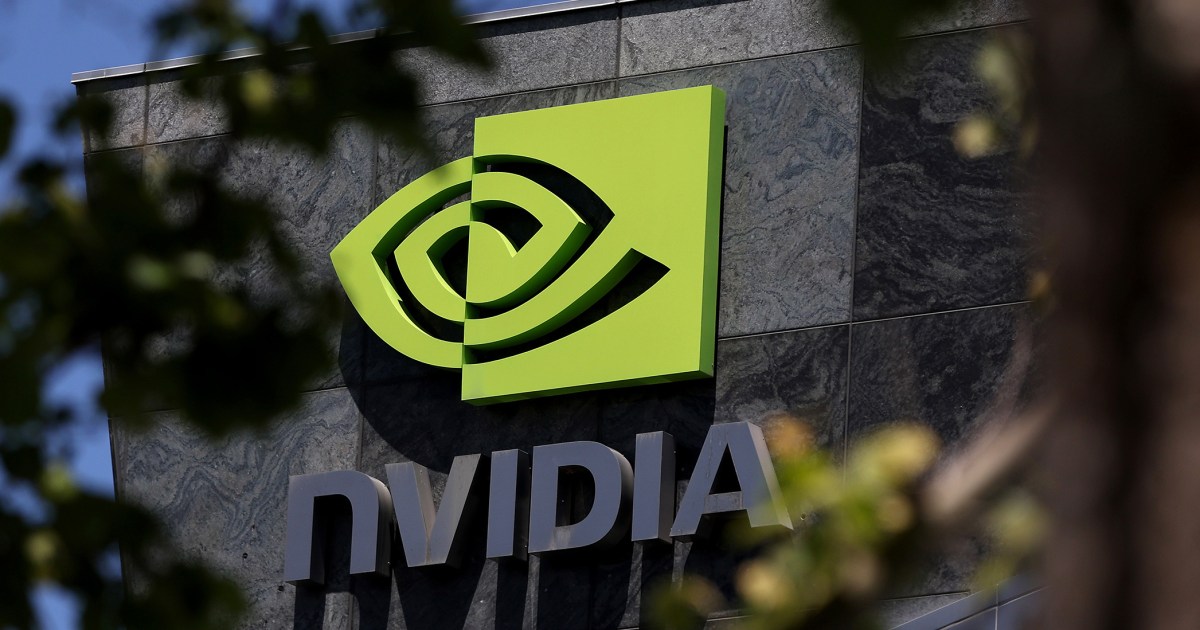
news Alerts
There are no new alerts at this time
The most valuable company in the world will report earnings Wednesday that will help answer a burning question for the U.S. economy: whether the artificial intelligence boom is real.
The company, computer-chip giant Nvidia, has powered much of the boom that has fueled 2025’s record U.S. stock market gains. But it’s not just stocks that benefit.
Nvidia’s chips have been the catalysts for a massive build-out of data centers that have supplied a backbone to the U.S. economy amid slowdowns elsewhere. More money is flowing into building data centers than all other manufacturing facility types combined, according to the research group S&P Global.
As trading kicked off Wednesday, investors signaled their optimism about Nvidia’s results, sending its shares up as much as 3%.
More broadly, however, stocks have shown signs of wobbling lately. The declines in share prices — led by tech companies — have sparked debates about whether AI-driven gains are beginning to slow.
This raises a bigger question: how the broader economy will perform if it no longer benefits from all the wealth the AI boom is creating.
The U.S. economy has become “highly dependent upon three basic elements: continued consumption amongst the affluent, AI investments, and asset appreciation,” Bill Mann, chief investment strategist at The Motley Fool investment advisory, said in a statement Wednesday.
“The market downdraft, led by the recent high-flying tech companies, is a recognition that the expectations for AI returns may be overly optimistic,” he said.
Nvidia is at the center of this discussion, as investors have begun to digest the company’s relatively cooler pace of sales growth.
The chipmaker is expected to report a 56% increase in revenues for the August-October quarter. It would be an impressive pace for virtually any other company, but for Nvidia it would represent another step down from the triple-digit gains it has reported in recent quarters.
In October, Nvidia CEO Jensen Huang said that his company has $500 billion in orders for its chips, for 2025 and 2026 combined.
“This is how much business is on the books. Half a trillion dollars’ worth so far,” Huang said at a conference in Washington, D.C.
Alongside broader concerns about the state of the U.S. economy, stock market momentum has been tripped up by worries about circular dealing among AI’s biggest players. This means the same money is being passed back and forth between several companies — even as each company’s individual value climbs.
Nvidia is a fixture in the kinds of deals that are raising concerns. It recently announced a commitment alongside Microsoft to fund AI software provider Anthropic with $10 billion.
This kind of big collaboration news would typically boost the stock prices of all the companies involved. But neither Nvidia’s nor Microsoft’s stock got a boost from the Anthropic announcement.
Analysts with Deutsche Bank said this is a sign of the ongoing investor wariness about deals like this.
“It goes to show how sentiment has turned more negative in the last few weeks, with the circular AI deals being treated with increasing caution as the conversation around a potential bubble has gathered pace,” they wrote in a note published Wednesday.
The question now is whether the latest market hiccups represent a temporary pullback or the onset of a more permanent state of affairs. Most experts are cautiously optimistic that the market will continue to climb.
“We think the investment boom has room to run,” Goldman Sachs researchers wrote in a note published Wednesday, adding that the economy writ large has remained resilient, something that should provide ongoing support to stock returns.
Stock “valuations are certainly stretched, yet they remain below the extremes of the dot-com era,” Seema Shah, chief strategist at Principal Asset Management, wrote in a note published last week. What’s more, many firms’ high stock prices are justified by still-solid earnings growth and robust revenue prospects, she wrote.
Still, “some investor skepticism about the likely return on that investment is healthy, particularly when it is impossible to quantify the scale of productivity improvement to expect,” she wrote.
Rob Wile is a Pulitzer Prize-winning journalist covering breaking business stories for NBCNews.com.
© 2025 NBCUniversal Media, LLC